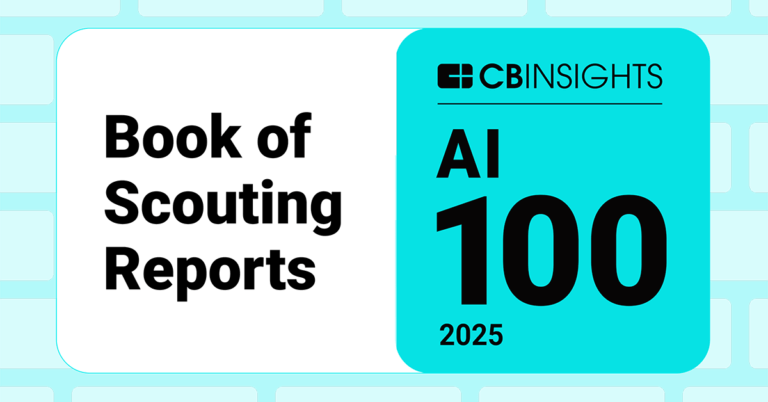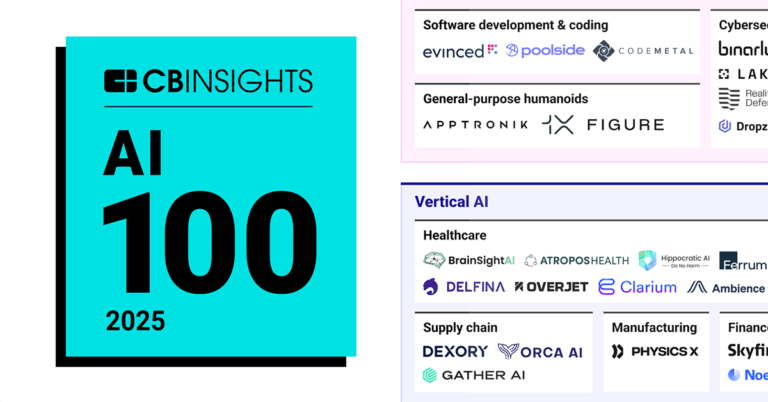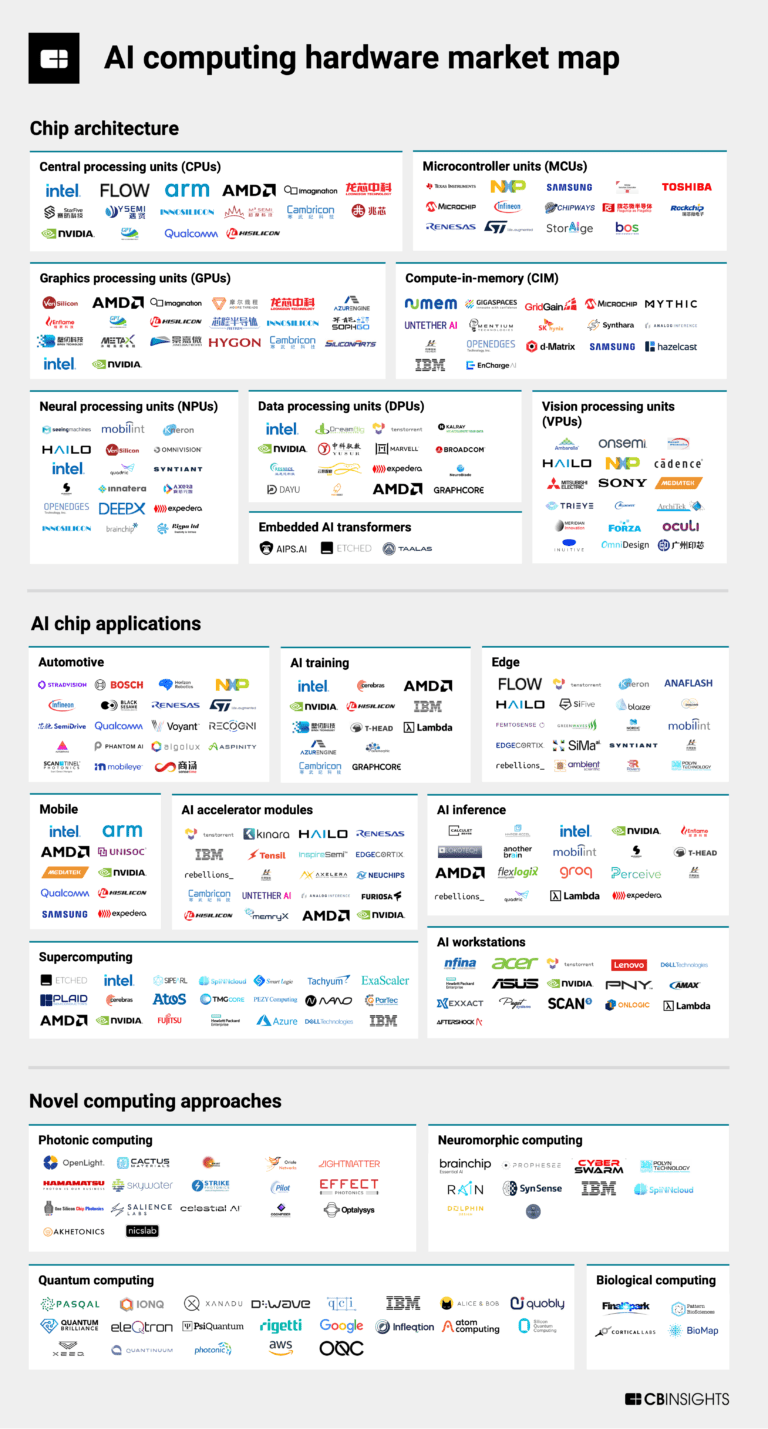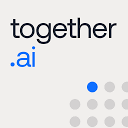
Etched
Founded Year
2022Stage
Series A | AliveTotal Raised
$125.46MLast Raised
$120M | 1 yr agoMosaic Score The Mosaic Score is an algorithm that measures the overall financial health and market potential of private companies.
+29 points in the past 30 days
About Etched
Etched focuses on developing the transformer supercomputer, specializing in the high-performance computing sector. The company's main offering includes powerful servers designed for transformer inference, which are capable of processing extensive data for applications such as real-time voice agents and content generation. The company's products are aimed at supporting complex computational tasks like running trillion parameter models and are complemented by a fully open-source software stack. It was founded in 2022 and is based in Cupertino, California.
Loading...
ESPs containing Etched
The ESP matrix leverages data and analyst insight to identify and rank leading companies in a given technology landscape.
The supercomputer processors market focuses on developing high-performance computing processors. These microprocessors are designed to perform highly complex calculations at unprecedented speeds, catering to various applications, including scientific research, climate modeling, bioinformatics, national security, and, increasingly, AI. These processors accelerate AI applications' training and infer…
Etched named as Challenger among 9 other companies, including Advanced Micro Devices, NVIDIA, and Intel.
Loading...
Research containing Etched
Get data-driven expert analysis from the CB Insights Intelligence Unit.
CB Insights Intelligence Analysts have mentioned Etched in 3 CB Insights research briefs, most recently on May 16, 2025.

May 16, 2025 report
Book of Scouting Reports: 2025’s AI 100
Apr 24, 2025 report
AI 100: The most promising artificial intelligence startups of 2025
Sep 13, 2024
The AI computing hardware market mapExpert Collections containing Etched
Expert Collections are analyst-curated lists that highlight the companies you need to know in the most important technology spaces.
Etched is included in 5 Expert Collections, including Generative AI.
Generative AI
2,793 items
Companies working on generative AI applications and infrastructure.
Semiconductors, Chips, and Advanced Electronics
7,428 items
Companies in the semiconductors & HPC space, including integrated device manufacturers (IDMs), fabless firms, semiconductor production equipment manufacturers, electronic design automation (EDA), advanced semiconductor material companies, and more
Artificial Intelligence
10,195 items
AI 100 (2025)
100 items
AI 100 (All Winners 2018-2025)
100 items
Etched Patents
Etched has filed 2 patents.
The 3 most popular patent topics include:
- dynamic programming
- matrices
- parallel computing

Application Date | Grant Date | Title | Related Topics | Status |
|---|---|---|---|---|
5/10/2023 | Parallel computing, Dynamic programming, Matrices, Bioinformatics, RNA | Application |
Application Date | 5/10/2023 |
|---|---|
Grant Date | |
Title | |
Related Topics | Parallel computing, Dynamic programming, Matrices, Bioinformatics, RNA |
Status | Application |
Latest Etched News
Aug 1, 2025
August 1, 2025, 6:05 pm IDT The current landscape of AI inference is a “bloodbath in the finance department,” as Robert Wachen, Co-Founder and COO of Etched, starkly put it during his presentation at the AI Engineer World’s Fair. He highlighted a critical juncture where AI models are finally delivering on their promise, yet the underlying infrastructure is struggling to keep pace, leading to unsustainable costs and performance limitations. Wachen elaborated on why the general-purpose hardware paradigm, primarily GPUs, has hit a scaling wall, paving the way for a new era of specialized AI chips. Wachen articulated that when AI models reach a tipping point in quality and cost, an “unstoppable surge of inference demand” follows. This demand is exponential, with the number of tokens processed doubling every three months. However, the compute density of GPUs has shown diminishing returns since 2022, improving by only 15% in three years. General-purpose chips have simply grown larger and more power-hungry, moving from air-cooled to liquid-cooled, and from single to multiple stitched dies. This brute-force scaling is economically unviable, creating a “massive delta between supply and demand” that current hardware cannot bridge. The solution, according to Etched, lies in specialized chips. For the first time in history, the spend on AI models is orders of magnitude greater than the cost of custom chips. Wachen explained that if a company is spending $100 billion on an AI model, a mere 0.1% investment in a custom chip can yield over a thousand percent performance improvement. This shift isn’t merely about silicon; it necessitates a complete rethinking of data center infrastructure, including interconnections, thermal management, and power delivery. Etched’s answer to this challenge is Sohu, touted as the world’s first transformer ASIC. This specialized chip is designed specifically for AI inference, making deliberate trade-offs, such as not supporting high-precision data types or training. These optimizations allow Sohu to deliver remarkable performance: it is over 15 times faster, 10 times cheaper, and consumes 9 times less power for tasks like generating 1 million Llama 70B tokens. Such specialized hardware unlocks previously intractable real-time AI applications. Wachen cited real-time video generation, where serving just one million users with an 8B model would require an astonishing 400,000 H100 chips, costing $10 billion in CapEx. This is simply not sustainable. He also pointed to real-time code generation, where a “latency cliff” means suggestions delivered beyond 100-300 milliseconds are largely ignored, leading to wasted compute. Current solutions involve small, low-quality models or expensive, inefficient low batch sizes. Lastly, enterprise peak load problems, common in cloud computing, are exacerbated by AI’s unpredictable demands, forcing companies to over-provision by hundreds of millions of dollars just to handle intermittent surges. Many enterprises, Wachen noted, “will not roll out this product until this problem is solved.” Etched’s strategy is to specialize in the stable elements of AI models while allowing for flexibility in evolving components. The company boasts a team of over 150 engineers from leading AI and chip companies, having secured supply chain partnerships and sold out its initial production run. This focused approach is positioned to meet the burgeoning, yet currently unaddressable, demand for real-time AI at scale.
Etched Frequently Asked Questions (FAQ)
When was Etched founded?
Etched was founded in 2022.
Where is Etched's headquarters?
Etched's headquarters is located at 20400 Stevens Creek Boulevard, Cupertino.
What is Etched's latest funding round?
Etched's latest funding round is Series A.
How much did Etched raise?
Etched raised a total of $125.46M.
Who are the investors of Etched?
Investors of Etched include Primary Venture Partners, Two Sigma, Positive Sum, Skybox Capital, Peter Thiel and 13 more.
Who are Etched's competitors?
Competitors of Etched include Fractile.
Loading...
Compare Etched to Competitors
ConfidentialMind specializes in the deployment and management of enterprise-grade large language model (LLM) applications within the AI operations domain. The company offers a Kubernetes-based tool that facilitates the integration of generative AI applications into business workflows, enabling deployment on various cloud services or on-premises hardware. ConfidentialMind's solutions are designed to streamline development processes, offering templates and handling the complexities of AI application life cycle management, from testing to production. It was founded in 2023 and is based in Espoo, Finland.

Moonshot AI focuses on developing solutions in the artificial intelligence sector. The company provides services that utilize large language models and natural language processing to create AI chatbots and other applications. Moonshot AI serves sectors that require AI interactions and language understanding. It was founded in 2023 and is based in Beijing, Beijing.

Recogni develops multimodal generative AI inference systems for the data center industry. The company's offerings include a logarithmic number system that improves AI model inference and a set of hardware and software solutions for computational processes related to generative AI. Recogni's technologies are designed for hyperscalers, cloud service providers, and enterprises that use AI. It was founded in 2017 and is based in San Jose, California.

Aleph Alpha specializes in generative artificial intelligence (AI) technology for enterprises and governments within the artificial intelligence sector. The company offers language models and multimodal AI solutions for human expertise, compliance, and AI applications. Aleph Alpha's technology is tailored for various architectures and value chains. It was founded in 2019 and is based in Heidelberg, Germany.
AI Planet specializes in generative AI orchestration and integration for various business sectors. The company offers a platform for building and deploying custom large language models (LLMs) efficiently within secure enterprise environments, along with an AI marketplace for additional resources. AI Planet's solutions are designed to be secure, private, and cloud-agnostic, catering to enterprises looking to integrate AI into their operations. It was founded in 2020 and is based in Leuven, Belgium.

Together AI focuses on the development, training, fine-tuning, and deployment of generative artificial intelligence (AI) models. The company provides services including AI model training, inference, and utilizes a cloud-based infrastructure. Together AI serves various sectors by offering solutions that cover the generative AI process from research to production. It was founded in 2022 and is based in San Francisco, California.
Loading...
